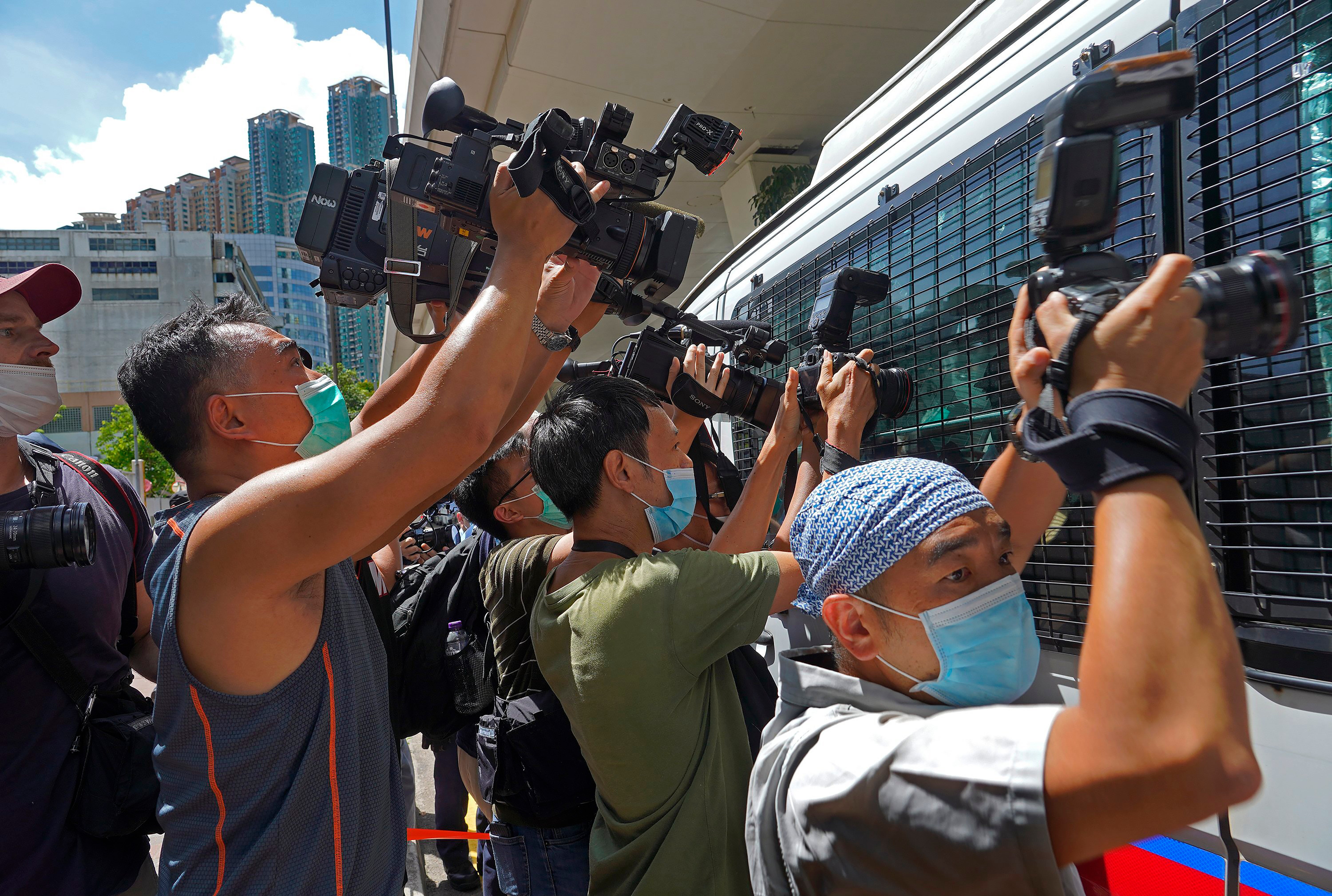Hong Kong journalists protest new accreditation rules
Hong Kong’s professional journalism association has protested new rules restricting who can provide press coverage during demonstrations, saying the government has no right to determine who is or isn’t a reporter

Your support helps us to tell the story
From reproductive rights to climate change to Big Tech, The Independent is on the ground when the story is developing. Whether it's investigating the financials of Elon Musk's pro-Trump PAC or producing our latest documentary, 'The A Word', which shines a light on the American women fighting for reproductive rights, we know how important it is to parse out the facts from the messaging.
At such a critical moment in US history, we need reporters on the ground. Your donation allows us to keep sending journalists to speak to both sides of the story.
The Independent is trusted by Americans across the entire political spectrum. And unlike many other quality news outlets, we choose not to lock Americans out of our reporting and analysis with paywalls. We believe quality journalism should be available to everyone, paid for by those who can afford it.
Your support makes all the difference.Hong Kong’s professional journalism association on Thursday protested new rules restricting who can provide press coverage during demonstrations, saying the government has no right to determine who is or isn't a reporter.
The rules outlined in a Tuesday letter from police have been criticized as a further erosion of the semi-autonomous Chinese territory’s once robust press freedoms since Beijing imposed a sweeping national security law in June that has had a chilling effect on political speech.
Only journalists registered with the Government News and Media Information Service or members of “internationally recognized and reputable” foreign media outlets will be recognized as journalists during protests, according to the police letter.
That appears to undercut the authority of the Hong Kong Journalists Association and Hong Kong Press Photographers Association to vet candidates for membership and issue press cards, placing that right solely in the hands of government officials, as is the case in mainland China.
“Police cannot be permitted to use administrative means to screen only officially recognized media, thus undermining the fundamental rights of the people of Hong Kong," the Hong Kong Journalists Association said in a statement.
In their letter, the police said their goal is to weed out troublemakers posing as journalists who they say disrupted police action against protesters over several months of sometimes violent anti-government demonstrations.
“Following the amendment, the definition of ‘media representatives' will become clearer and unequivocal, allowing front-line officers to efficiently and swiftly verify the identity of media representatives so that facilitation can be provided without compromising police operational efficiency," the police letter said.
The regulations leave it to the police to determine what media outlets are “internationally recognized and reputable" and could discriminate against freelancers and independent and student journalists, who often work alone with minimal equipment and infrastructure.
Hong Kong has dropped steadily in Reporters Without Borders annual World Press Freedom Index, falling seven places this year to 80.
Hong Kong's press freedom “is already in retreat as a result of pressure from Beijing," the group said, citing among cases the expulsion of Financial Times Asia editor Victor Mallet in October 2018 after he chaired an even at the Foreign Correspondents’ Club of Hong Kong that was condemned by Beijing.